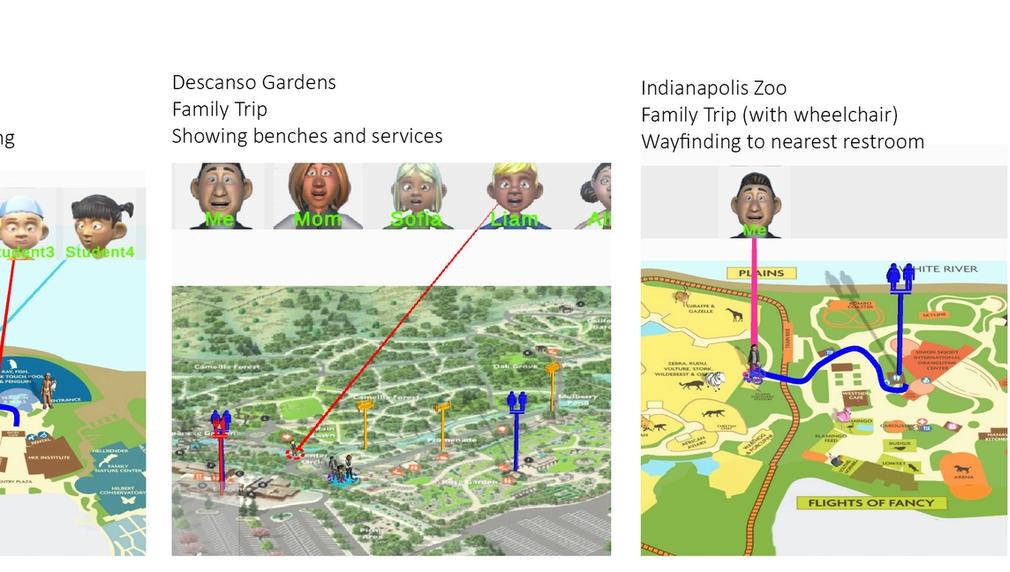Access LA
Access LA will make Los Angeles County a national leader in accessibility by 2028, ensuring public spaces are welcoming to all. The project focuses on equity by using innovative mapping services, group-tracking tools, and AI to eliminate access barriers faced by people with disabilities, seniors, and families. From beaches to parks to museums, Access LA will help every Angeleno and visitor to LA feel safe, informed, and empowered to explore the county.

What is the primary issue area that your application will impact?
Green space, park access, and trees
In which areas of Los Angeles will you be directly working?
City of Los Angeles (select only if your project has a citywide benefit)
In what stage of innovation is this project, program, or initiative?
Pilot or new project, program, or initiative (testing or implementing a new idea)
What is your understanding of the issue that you are seeking to address?
Access LA stems from our team’s personal and professional experience with accessibility. We’ve developed solutions with the Toyota Mobility Foundation and Morgan’s Wonderland, the nation’s first fully accessible amusement park. We've served as school board members, LA County Parks and Recreation and Beach Commissioners, and regional park board members - roles that gave us direct insight into how infrastructure fails children, seniors, people with disabilities, and those with limited means. For example, older adults often avoid outings due to inaccessible restrooms or missing benches. Families face stress when a child with disabilities or an elderly relative strays from the group. These common, preventable barriers create inequity in who feels safe and welcome in public spaces. Access LA addresses these gaps through real-time information, safety tools, and adaptive navigation (wayfinding) tailored to users’ needs.
Describe the project, program, or initiative this grant will support to address the issue.
Access LA will create a mobile app (iOS and Android) and companion website designed to make Los Angeles County’s public spaces accessible for people of all ages and abilities. It integrates three key technologies:
VxTechnology is a flexible, dynamic mapping system that allows users to see their location on artist-rendered or non-linear maps - like those used in parks or attractions. Unlike traditional maps, VxTechnology highlights real-time features such as closed restrooms, nearby events, or accessible routes. It allows institutions to customize the visitor experience with intuitive, accurate navigation tools—even when GPS coverage is limited or the map is not to scale. Wayfinding (nearest restroom, nears bench, etc) can be shown directly on the facility map.
Gaggle is a group safety and tracking system originally developed for school field trips. It enables users to monitor group members in real-time, reducing stress for families, caregivers, and tour guides. Gaggle also allows visitors to locate guides, docents, or support staff.
AI Personalization lets users input their specific needs - such as limited mobility, distance limits, or required proximity to restrooms. The system responds by tailoring maps and suggestions accordingly, offering accessibility without complicated settings.
Together, these tools will give users the confidence, safety, and autonomy to fully enjoy LA’s cultural and recreational spaces.
Describe how Los Angeles County will be different if your work is successful.
When Access LA succeeds, Los Angeles County will become a model for equitable, inclusive access to public spaces. More residents - especially seniors, people with disabilities, and underserved families - will feel safe and confident exploring parks, beaches, and cultural sites they previously avoided due to uncertainty or inaccessibility. Access LA will reduce isolation, increase civic engagement, and foster a stronger sense of belonging. Institutions will gain real-time insight into accessibility needs and visitor movement, allowing them to make proactive improvements. Community organizations and local governments will have a scalable tool to support inclusive programming countywide. Ultimately, Access LA will shift the culture of access from reactive compliance to proactive inclusion, setting a new standard before the 2028 Olympics - and beyond.
Approximately how many people will be impacted by this project, program, or initiative?
Direct Impact: 5,000
Indirect Impact: 50,000